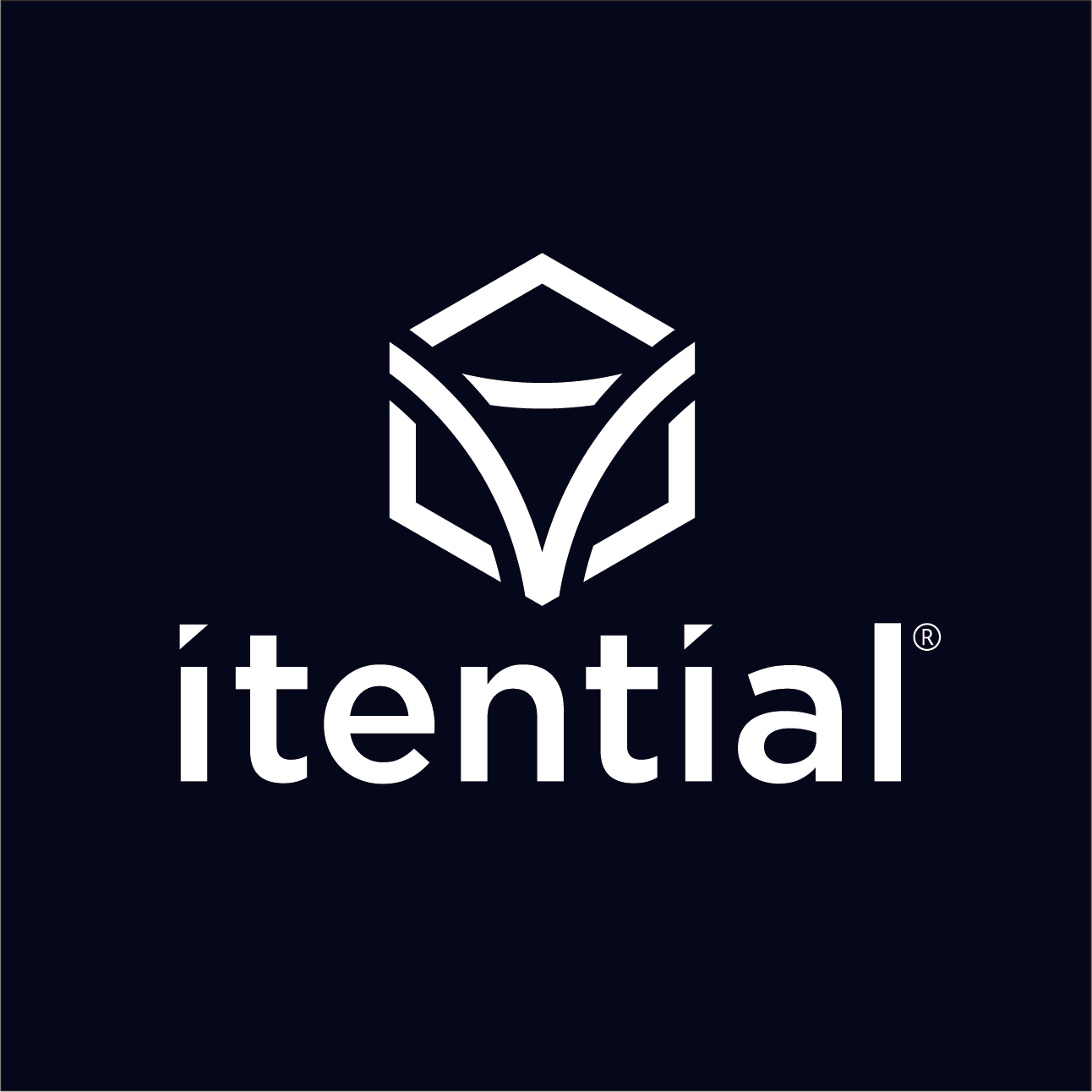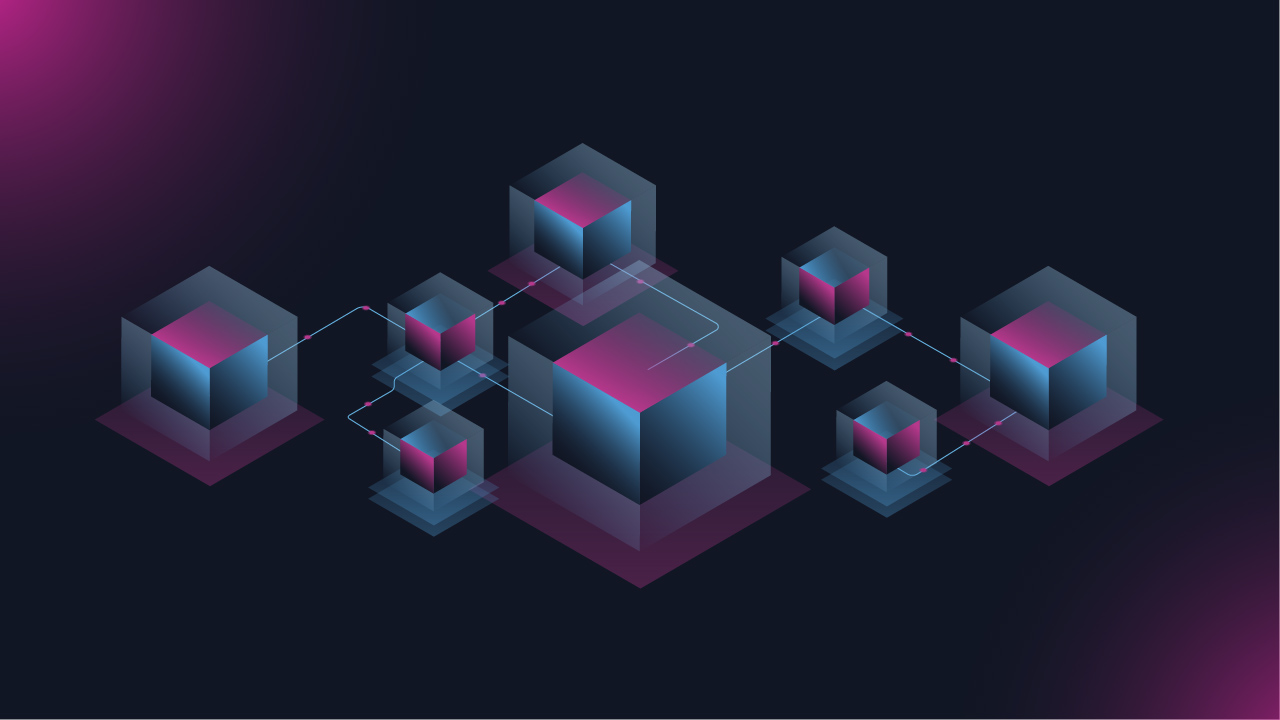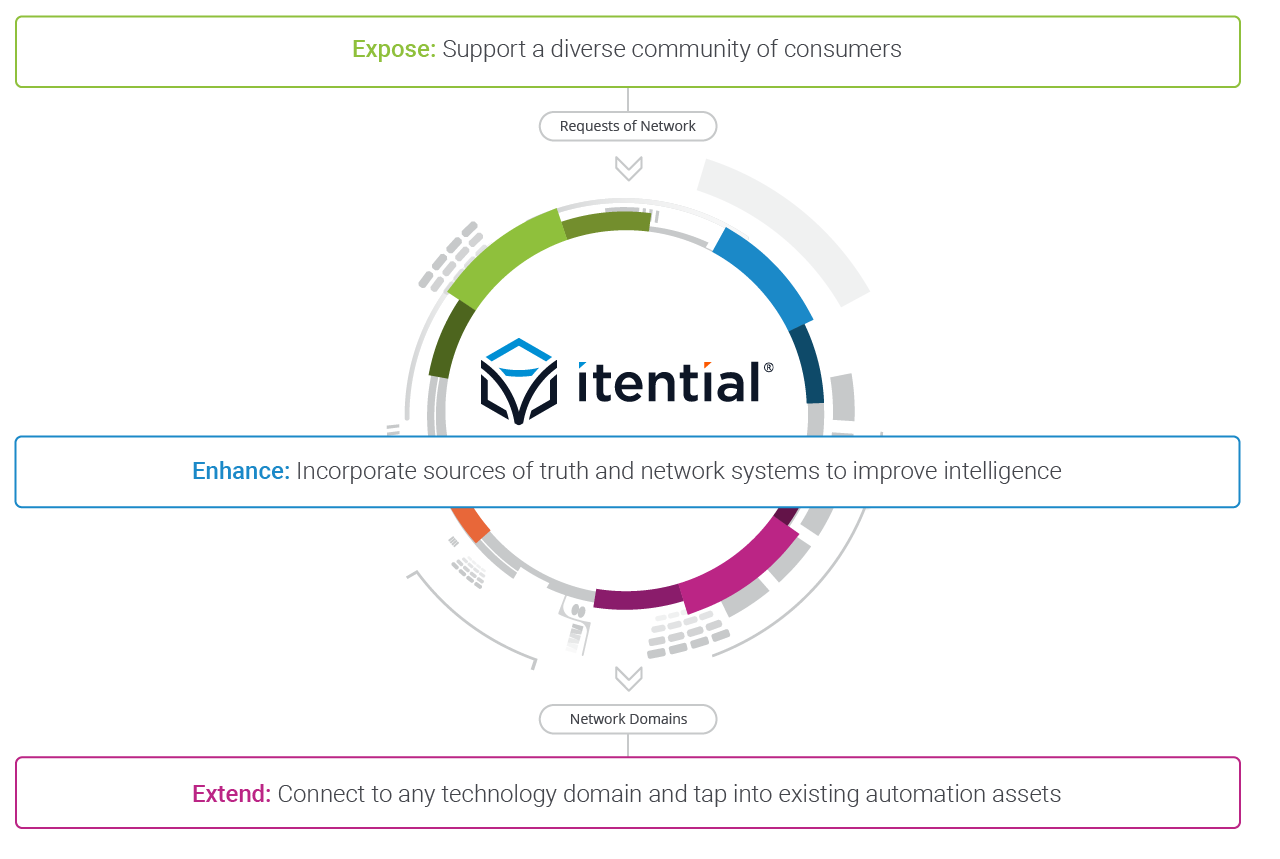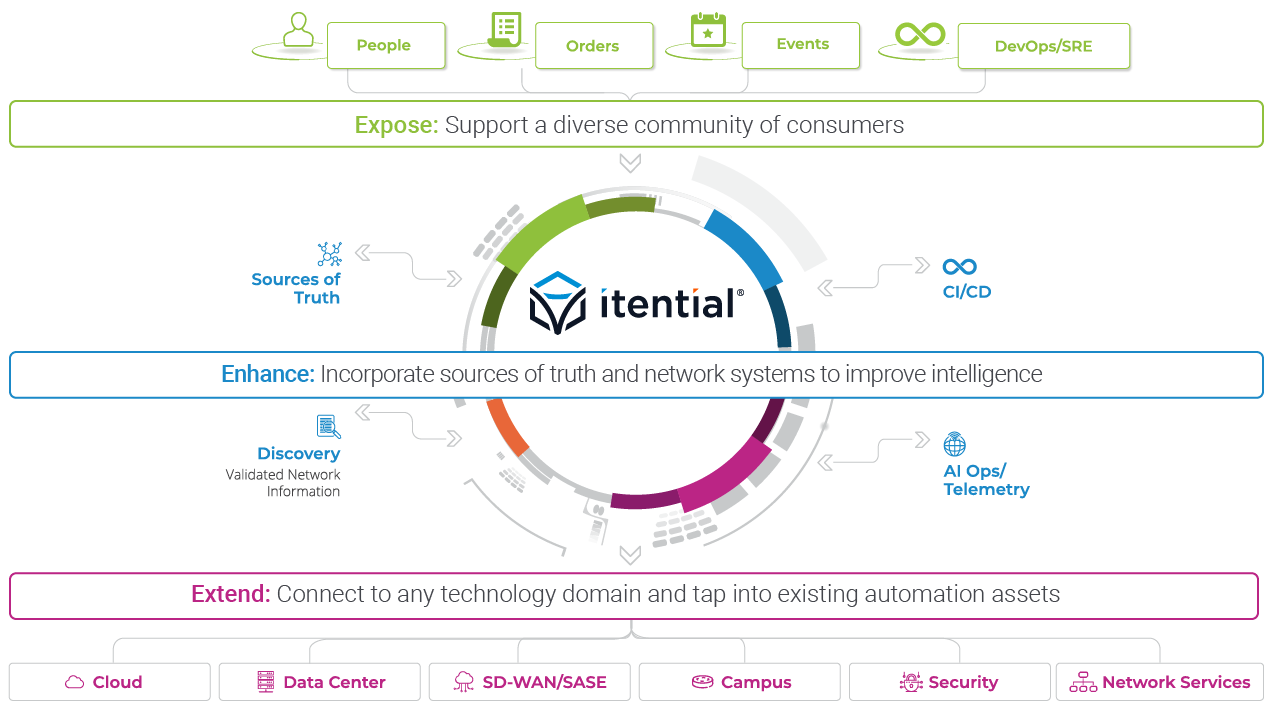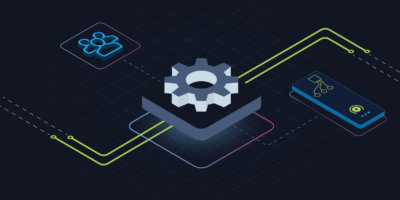New technologies and capabilities are becoming available at a rate that far surpasses the level that IT integration teams and standard bodies can accommodate. At the same time, internal stakeholders are eager to consume new network services in a variety of ways – through ITSM systems like ServiceNow, as part of CI/CD pipelines, or in a Network as a Service model.Automation systems that are hard coded to specific technologies or rely on a vendor to model to build themselves will not scale to meet today’s modern infrastructure demands. The only way to support these demands put on your network is to maximize the power of your network through a truly integrated ecosystem that allows teams to execute network changes across all technologies, domains, vendors, and platforms.
I recently did a webinar to cover the three elements needed to get the most out of your network, so I’ll share a few of the highlights.
The Three Elements of an Integrated Ecosystem
Expose
Support a diverse community of consumers.
The first building block of an integrated ecosystem is exposure to a wide variety of consumers through northbound integration via API. By exposing automation capabilities to a wide range of potential end users, you simplify the consumption of your network orchestrations and automations. These multiple models and options for consumption enable greater speed and access, driving up the value of your automation efforts.
In this model, a network change could be prompted by a person manually initiating it, similarly to traditional network infrastructure – but it could also be prompted by a service order or an order through your ITSM system, a network or security event, a NetDevOps pipeline, or a Network as a Service (NaaS) offering.
Enhance
Incorporate sources of truth and network systems to improve intelligence.
So the automation solution can integrate northbound for different users, great. That’s one step – now we need to make sure it works seamlessly alongside your ecosystem. After all, modern infrastructure uses many different tools and systems, will often employ a distributed source of truth model, and could utilize any number of different monitoring tools, validation tools, and other network analytics or telemetry systems. A network automation solution that truly enables automation across a fully integrated ecosystem will enhance the value of your existing infrastructure, incorporating your source(s) of truth as well as integrating east/west with your other IT systems to both query and update information in real-time.
This approach will eliminate what’s known as the ‘integration tax’ with commonly used systems – the need to always keep up with a myriad of custom coded integrations specifically built for every current application, that will inevitably change so frequently the process of updating the code never ends. Eliminating this tax ensures that you never need to manually copy and paste data from a discovery or validation system into your automation, and you won’t have to worry about swivel-chairing to update sources of truth between disparate platforms.
Extend
Connect to any technology domain and tap into existing automation efforts.
Southbound integration to all your network domains is the final piece of the puzzle for end-to-end network automation across your infrastructure. Modern networks are distributed across resources in the data center, cloud, SD-WAN, and other domains – to be able to automate anything more than a single, siloed task across your hybrid infrastructure, you need a platform that can orchestrate automation workflows across different domains without requiring manual input or greatly increasing complexity.
Itential Integrates with Everything, So You Can Automate Anything
Now that you’ve had a quick rundown of each element of an integrated ecosystem, you can start to see the true value a platform like Itential provides. Our automation solution exposes its functionality to more users so that DevOps teams, order systems, and events systems have access to the same level of functionality as the network engineers do once the automations are published. Then, by working east/west with all your other network systems, Itential enables you to build automation workflows that interact with your network sources of truth, your monitoring and validation systems, and the rest of your infrastructure to reduce manual processes. And with southbound integrations you can apply those automations to any domain, enabling orchestration across your entire infrastructure without adding operational complexity.
With network infrastructure becoming more complex and only more important for modern organizations, integration capabilities are vital to avoid inefficiency, technical debt, and lack of vendor freedom. Itential provides our customers with an automation and orchestration solution that works with their systems, meeting the customer wherever they are to maximize what automation can do for their network.
Itential’s ecosystem capabilities have enabled the Itential Automation Platform to become the platform of choice for organizations who wish to bring new services and capabilities to market quickly, and to enable users to consume network services in whatever model the business requires.
To learn more about how you can leverage an integrated ecosystem, you can watch the full webinar on-demand here.
